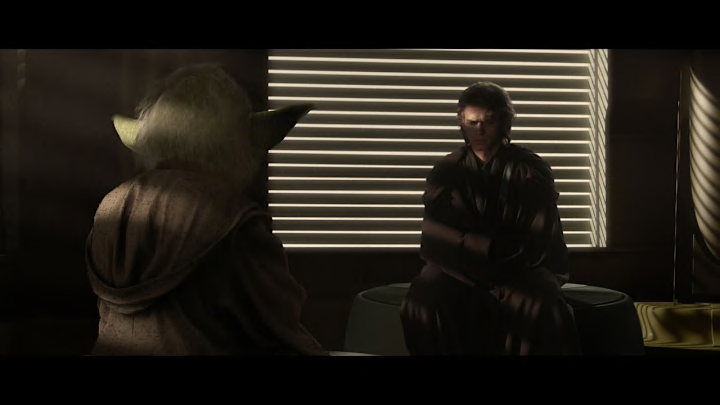We are approaching Halloween, which started as a way to remember the dead. Star Wars is full of ways in which people honor the departed. With so many examples out there, from the Mourning Shrines that appear on Mon Cala in the Allegiance comics to the Bellassan Nine Days of Mourning from Last of the Jedi, let's look at a few and their unique benefits we might apply to our lives.
Those who join the Force
The Jedi of the Old Republic have a complex relationship with emotional relationships. Anakin says in Star Wars Episode II: Attack of the Clones that "Attachment is forbidden...but compassion, which I would define as unconditional love, is central to a Jedi's life." It makes sense that after the fall of Qui-Gon Jinn in the Battle of Naboo, the Jedi would allow the people of that planet to express their grief for one of their saviors by holding a funeral before they hold a victory celebration.
Yoda's counsel to Anakin in Episode III: Revenge of the Sith is not helpful and is out of context. Visions of death and loss plague Anakin, and Yoda tells him that "Death is a natural part of life." This exchange happens between two Jedi who have spent three years in the Clone Wars, and understandably, there is anxiety over something that could have been prevented. The Jedi Knight who literally sees his wife's possible death as a reason to apprentice to a Sith Lord doesn't need to be told to "Rejoice for those around you who transform into the Force."
On the other hand, a Jedi facing the emotional upheaval of loss, which is a normal response, could use advice now to find strength in their beliefs. That sort of person could be served by the encouragement to "Rejoice for those around you who have transformed into the Force."
Corellia and Alderaan
In a Star Wars Legends novel, Michael A. Stackpole gave us two wonderful regional examples of how to deal with mourning. X-wing: The Bacta War, Chapter 4 finds Corran Horn seeking out his friend and partner, Iella Wessiri, in the Corellian Sanctuary after the death of her husband. It's explained that there is no realistic way for Corellians to return to their homeworld because of political unrest. Instead, the ashes of the dead are turned into diamonds, which "Imparted a physical immortality to the dead." In the Sanctuary, those diamonds are embedded in the walls and ceiling to form the constellations that would be visible from Corellia.
Seven chapters later, Tycho Celchu performs a Return to Alderaan. We know from earlier in the series that he was speaking to his family by comm when the planet was destroyed, and it has tormented him over the intervening years. He relates that people see it as a "watershed experience" and that "all the mental and emotional energy that had been funneled into the planet's pacifist philosophy had been shifted and focused on a person's Return." He purchases gifts his loved ones would have liked before sending them in a capsule into the Graveyard of Alderaan's remains. He hopes that "when life abandons me, I am returned here to be among you, so that for eternity, we may be together as we should have been in life."
Eulogy
In another Legends book, Legacy of the Force: Inferno, Mara Jade is memorialized. Words of tribute are spoken, but it is worth mentioning that a remembrance feast among the participants follows the service. It is also significant that as Mara is remembered in words, her body disappears into the Force.
In the novelization of Episode VIII: The Last Jedi, Leia is charged with the memorial for Han. She admits to herself that she didn't want to hold the ceremony at all when war was coming but was convinced of it by Admiral Ackbar. She uses the opportunity to remember the man she loved fondly but has this to say equally in his honor:
"We must return to the fight. We do so because, like Han, we believe in justice and freedom... We all have our sorrows. And we will never forget them or those we have lost. In time, we will honor them more fully and properly. But we must save our sorrow or after the fight. Because right now, we have work to do."Leia Organa
It is appropriate that, near the end of this chapter of the story, Vice-Admiral Holdo credits Leia with teaching her how to take loss.
May we all take the time we need to remember our loved ones in ways that allow us to "return to the fight" of going on without them.
